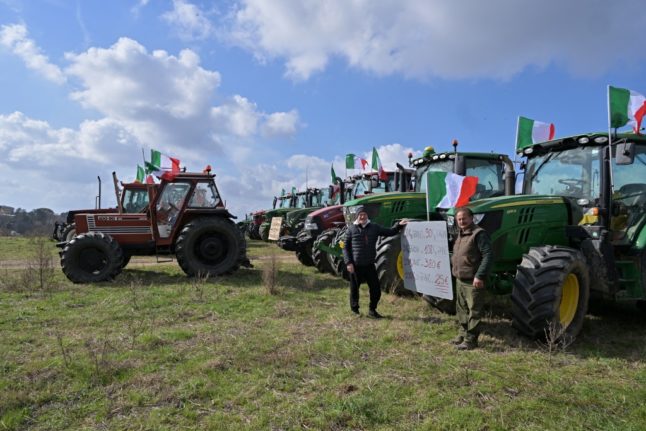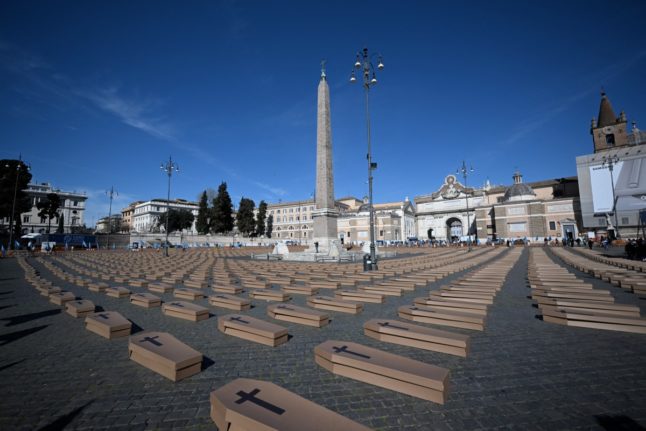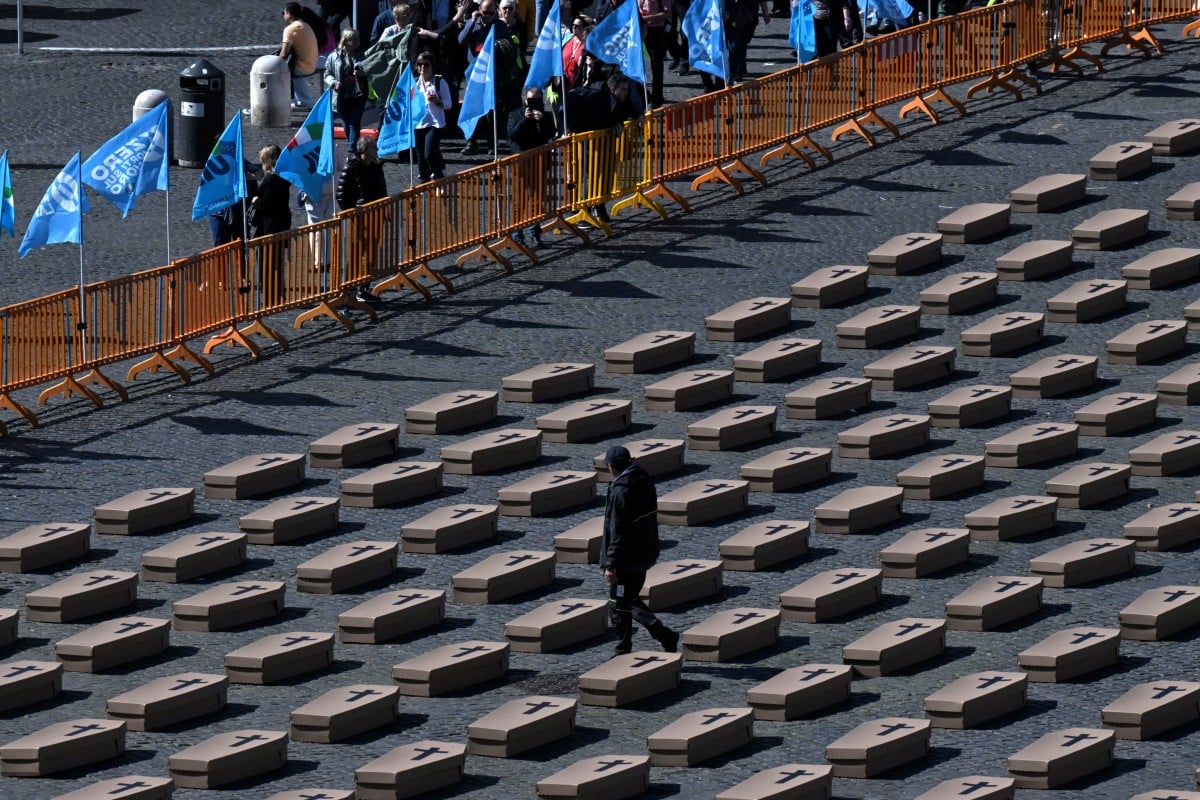Rome was braced for protests by farmers as the weekend began, with some 1,500 tractors originally slated to take part in demonstrations in the capital beginning on Friday which farmers’ groups said would “definitely” cause widespread disruption.
The protests were planned following a wave of agricultural protests across Europe, with similar demonstrations in Spain leading to a fourth consecutive day of roadblocks on Friday.
READ ALSO: Tractors converge on Rome as farmers protest across Europe
Italian farmers, protesting against EU agricultural policies and high taxation, have also staged a number of small blockades in recent days, converging on Rome with plans for a bigger demonstration in the capital.
The scale of Italian protests so far has been far smaller than that of demonstrations held elsewhere in Europe, where farmers have gone as far as blocking access to airports and bringing traffic in major cities such as Paris and Barcelona to a standstill.
But could Italy’s tractor protests pick up steam and cause disruption this weekend as promised?
One of the protest groups’ leaders, Danilo Calvani, said last week that he expected “thousands from all over Italy to take part” in the Rome demo and warned that “there definitely will be disruption”.
However, as of Friday morning the event was expected to be much less disruptive than earlier reports had suggested.
After negotiations with Rome’s prefecture (public safety authority), demonstrators on Wednesday agreed that they would not drive hundreds of tractors through central Rome as planned. Nor were they expected to bring the capital’s ring road to a standstill.
Instead, around 1,500 farmers and 10 of the over 500 tractors parked just outside the city were allowed to gather in Rome’s central Piazza San Giovanni at 10am on Friday, according to local media reports.
Some roads in the capital may be temporarily closed on Friday morning to allow the tractors access to and from the square, according to newspaper Il Corriere della Sera.
The event will not include its original procession through Rome’s city centre, with demonstrators expected to be escorted to San Giovanni and back by police.
One protest group announced on Friday that it would hold a tractor protest on the city’s motorway ring road – but not until “around 9pm”.
“We confirm that there will be a procession of tractors on the ring road tonight,” a spokesperson for the Agricultural Redemption group told the Ansa news agency. “Only the time has yet to be established.”
The same group also said on Friday it would drive tractors “freely on the streets of Rome” on Saturday unless granted a meeting with Italy’s agriculture minister Francesco Lollobrigida, Ansa reported.
Elsewhere in the country, a group of farmers had gathered outside of Sanremo, the Ligurian seaside town where Italy’s popular Sanremo Music Festival is underway this week.
The group had demanded to make an appearance at the festival – which is Italy’s biggest televised event – saying if organisers refused their tractors would enter the town.
State broadcaster and festival organiser Rai denied the request on Thursday, saying the show’s host would instead “read a statement that will bring the problems, difficulties, and requests coming from the agricultural world to the attention of the general public”.




 Please whitelist us to continue reading.
Please whitelist us to continue reading.
Member comments